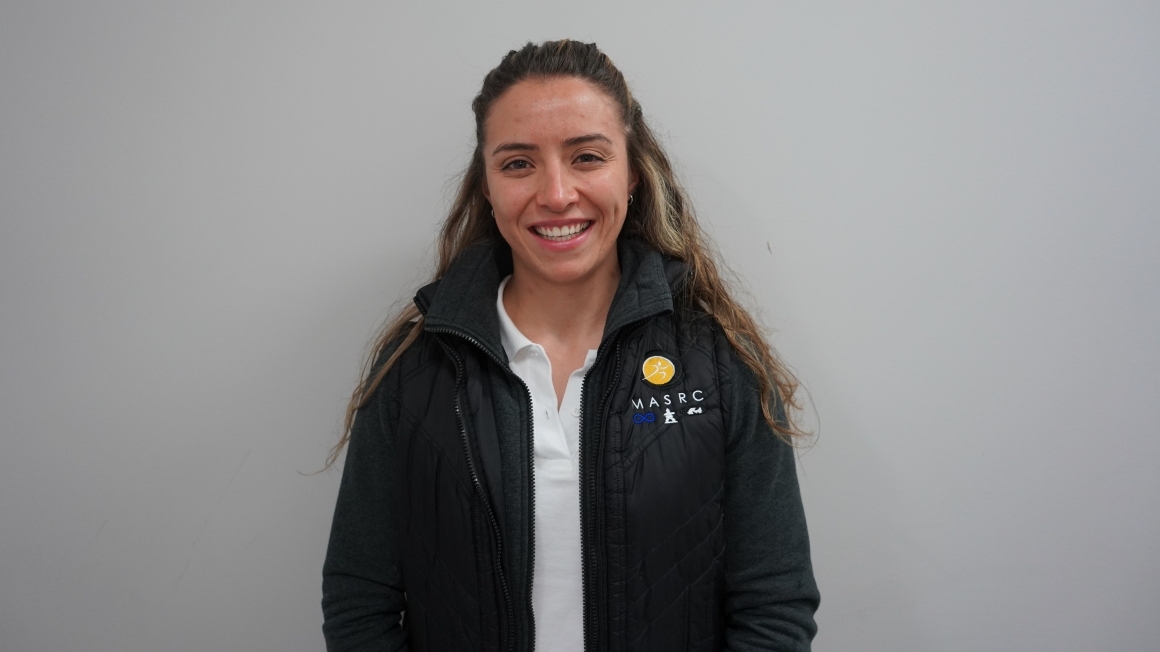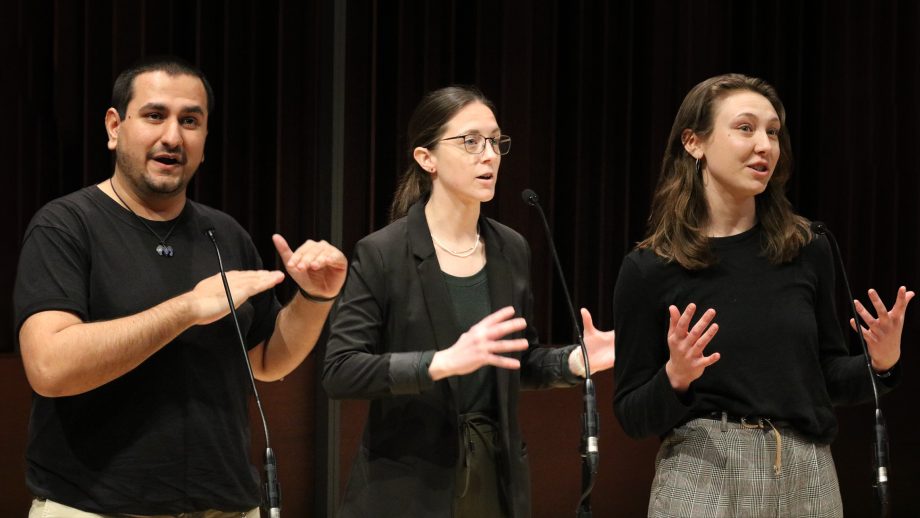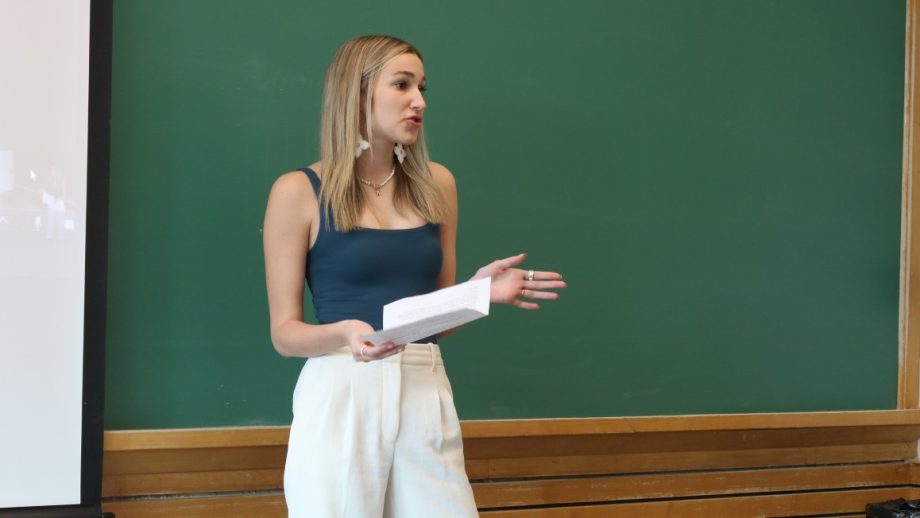When Dr. Arthur Walker-Jones recounts the story of his first meeting with Carriera Lamoureux, it’s as though he’s speaking of an apparition.
There had been no preamble to Lamoureux’s arrival in The University of Winnipeg’s Department of Religion and Culture, no over-the-phone meeting, no email exchange to discuss why UWinnipeg would be the right choice as she pursued graduate studies. Instead, one moment she wasn’t there. The next, she was.
“I don’t know how she found me,” Walker-Jones said with a chuckle. “She was a native of Winnipeg but had been away as an undergraduate elsewhere and just showed up in my office one day and said, ‘I want to learn what you know.’”
This isn’t to suggest Lamoureux hadn’t done her research. Indeed, she had. As she was wrapping up a pre-master’s program at the University of Manitoba, Lamoureux felt a pull towards a master’s in biblical studies and was intrigued by what UWinnipeg’s Faculty of Theology could offer.
She was also drawn to Walker-Jones’ work. More specifically, Lamoureux was intrigued by his research into eco-criticism. There was only one problem: by the time Lamoureux was preparing to pursue her Masters in Theology, the Faculty of Theology had ceased to exist.
“I had found out that that year was the last year,” Lamoureux said. “(Theology) was no longer accepting students. However, Arthur, he was very accommodating. He said, ‘You know what, we can still put a program [in the JMP in Religion] together for you that mimics those same goals.’ He was just so incredibly supportive and encouraging. He didn’t see that program limitation as a limit at all.”
Entering eco-criticism
Lamoureux’s pursuit of the JMP in Religion has transformed her research. Initially entering the program with little knowledge of eco-criticism, Lamoureux’s thesis – she is in the thesis-based rather than course-based track – is now focused solely in the discipline and explores the bible’s relationship with foxes through an eco-critical lens.
The goal is to decipher whether the bible as a text is more eco-critical, or conscious of the health of the earth rather than solely the wellbeing of humans, than previously believed.
Beyond a personal love of and interest in the animal, too, choosing to research foxes presents Lamoureux with a wealth of material.
“Foxes exist within our natural world, but they’re also truthfully demonized within medieval history, for example. They exist in folklore and myth. There’s a culture that has to say something about foxes, regardless whether they’re in Asia on Europe or Africa,” she said. “It’s simultaneously a manageable topic but one that allows a lot of varied and diverse perspective, which gives me an opportunity to look at this question from a more holistic point of view.”
Faculty Focus
Lamoureux’s focused pursuit can be credited in part to a faculty that emboldens its students. Part of what sets the JMP in Religion apart, Walker-Jones said, is the diversity and calibre of those leading the way, some of whom have international reputations or are on their way to developing such standing.
The JMP is composed of faculty from both the Department of Religion and Culture at The University of Winnipeg and from the Department of Religion at the University of Manitoba, making the program one of the largest masters programs in the study of religion in Canada.
The relationships that can be built with faculty are also a boon to those in the program – and that is true, sometimes especially so, when the areas of research don’t particularly line up as they do in the case of Lamoureux and Walker-Jones.
“It’s possible they may have a better experience and produce a better thesis even if the faculty member doesn’t have expertise in their area,” Walker-Jones said. “There might be more learning for them as the faculty are willing to give them time.”
That has undoubtedly helped Lamoureux create a thesis that Walker-Jones called “cutting edge” and praised as “exactly the kind of work I would like a graduate student to be doing.” And as she inches ever closer to presenting her work, Lamoureux has considered what her goals are for her completed work.
“I just want people to be able to pick up my thesis and it become readable for them. The significance for them is that maybe that promotes some kind of self-reflection. Maybe people will see something interesting, like, ‘I never thought about my relationship with something as singular as a fox or someone or whoever or whatever it is.’ That’s ultimately the impact I hope this has, both on readers who are perhaps believers but those who are not.”
And as for what Lamoureux hopes her future holds?
“If I was able to pursue academia, it’d be my PhD, but it’d be from a very different perspective. I’d be in Indigenous issues and reconciliation,” Lamoureux said. “But the reason my masters complements that so much is because non-human animals and women are constantly marginalized…I would be well-suited to then do a PhD in a very similar area. But the impact or the context would just be a little broader I would say.”
Applications for the 2022-23 Master of Arts in Religion September intake are open until January 15, 2022.
For more information about the Joint Masters Program in Religion, please visit the departmental website or contact Dr. Carlos Colorado by email at c.colorado@uwinnipeg.ca.





